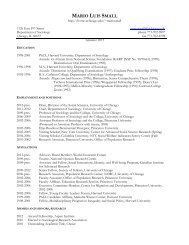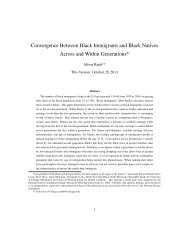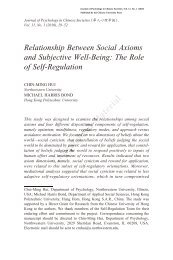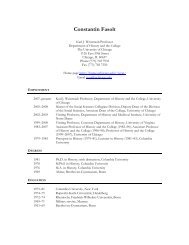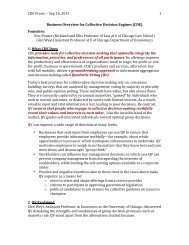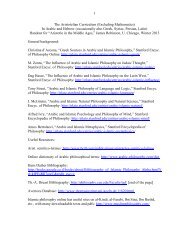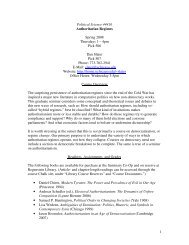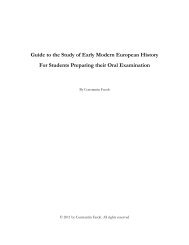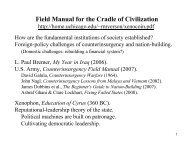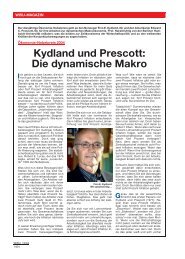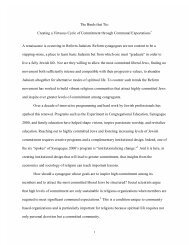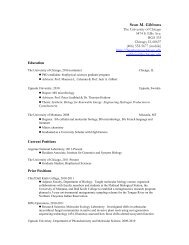Job Market Paper - Personal Web Pages - University of Chicago
Job Market Paper - Personal Web Pages - University of Chicago
Job Market Paper - Personal Web Pages - University of Chicago
You also want an ePaper? Increase the reach of your titles
YUMPU automatically turns print PDFs into web optimized ePapers that Google loves.
Kim: Endogenous Choice <strong>of</strong> a Mediator<br />
cooperative game. Likewise, I can argue that the observation <strong>of</strong> the players mimicking other players<br />
in the noncooperative game comes directly from a cooperative approach.<br />
Therefore, both approaches take into account, either directly or indirectly, the information<br />
leakage problem. By either approach, I can conclude that the selection <strong>of</strong> a mediator by privately<br />
informed players is endogenous and depends on the information that the players reveal by expressing<br />
their preferences for mediation. Consequently, with both approaches, I can define the smallest<br />
solution set for the given bargaining problem: When two privately informed players bargain over<br />
the choice <strong>of</strong> a mediator, the reasonable solution <strong>of</strong> a mediator in a cooperative sense is the neutral<br />
bargaining solution; and the equilibrium solution in a noncooperative sense is the threat-secure<br />
mediator. Remarkably, I obtain the same unique solution that is farthest away from ex ante<br />
incentive efficiency. Moreover, in the class <strong>of</strong> bargaining games considered in this paper, the intuition<br />
behind a noncooperative game can be founded on the very intuition behind a cooperative bargaining<br />
theory.<br />
6 An Illustrative Example<br />
Let us consider an example to illustrate the core idea <strong>of</strong> the symmetric interim incentive efficient<br />
set, the neutral bargaining solution, and the threat-secure set. Online Appendix C provides a<br />
more extensive illustration with detailed computations. Suppose that there are two players in the<br />
economy, and each player is one <strong>of</strong> two possible types: s (strong) or w (weak). There are two<br />
possible decisions called d 0 (war) and d 1 (peace). By the revelation principle, players bargain over<br />
the selection <strong>of</strong> a mediator, and they have candidates for the job from the set <strong>of</strong> all incentive feasible<br />
mediators, each <strong>of</strong> which is associated with a mediation mechanism. Consider the normalized utility<br />
pay<strong>of</strong>fs (u 1 , u 2 ) that depend on the decisions and types as shown in the following table. The pay<strong>of</strong>fs<br />
satisfy (A1) through (A3):<br />
Table 1: An Example<br />
t (s, s) (s, w) (w, s) (w, w)<br />
d = d 0 0, 0 0, 0 0, 0 0, 0<br />
d = d 1 4, 4 -1, 7 7, -1 4, 4<br />
36



